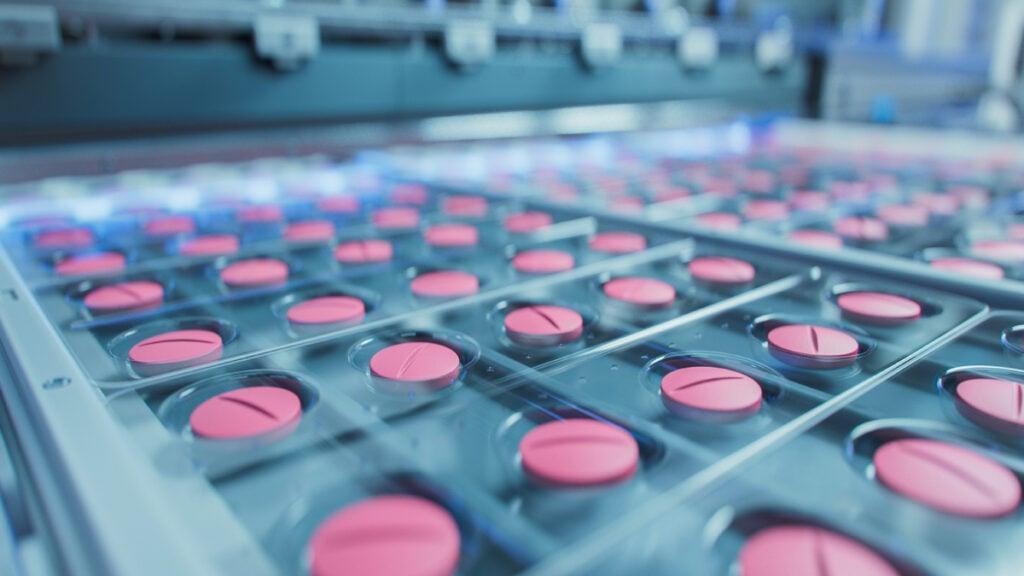Africa-Press – South-Africa. South Africa’s pharmaceutical industry is increasingly targeted by illicit traders looking to undercut legitimate sellers and producers and sell potentially harmful products.
This has an immense impact on the survival of pharmaceutical companies, results in significant losses in tax revenue, and potentially harmful products are sold to individuals.
Illicit pharmaceutical products can be unregulated and untested by authorities, posing a significant danger to South Africans.
The Transnational Alliance to Combat Illicit Trade (TRACIT) revealed this in its 2025 Illicit Trade Index, which was released earlier this month.
The illicit trade in pharmaceuticals refers to the prevalence of falsified, substandard and otherwise illicit pharmaceuticals in a country, as a provenance or destination.
The trade in substandard drugs, which contain too much or too little of the active ingredient, may be contaminated, may be poorly packaged or fail to meet quality standards in other ways, and is also part of this illicit trade.
TRACIT said the illicit trade of pharmaceuticals is closely linked to the trade in counterfeit goods, with both using similar methods to evade law enforcement.
The organisation said countries struggle to combat this kind of illicit trade because they tend to give it low priority compared to other crimes.
A particularly daunting task for law enforcement authorities is disrupting operations where, rather than shipping fully finished counterfeit products, counterfeiters often ship individual components or raw materials that are not counterfeit.
These components may appear as legitimate parts when they pass through customs, but once they arrive at the destination, they are assembled into counterfeit products.
TRACIT listed South Africa, alongside many emerging market economies, as one of the priority countries for mitigating illicit trade in pharmaceuticals.
The global illicit trade in pharmaceuticals is estimated to be worth $200 billion (R3.6 trillion) per year, which can make up around 10% of all medical sales in some countries.
There is also evidence of a shift among organised crime groups from smuggling narcotics and weapons to counterfeiting medicines, possibly even with terrorist organisations, TRACIT said.
Illicit trading boom in South Africa
SARS Commissioner Edward Kieswetter
TRACIT explained that illicit trade in South Africa is a major problem. Although the country has adequate legislation and regulations, it fails to implement them effectively.
It also said that South Africa has struggled to adequately tackle money laundering and illicit financial flows, which enable illicit trade to flourish.
SARS estimates that the illicit trade costs the economy R100 billion annually and robs the country of valuable resources.
This is dominated by the illicit trade in cigarettes, which are estimated to make up around 68% of all tobacco sales in South Africa.
As a result of this trade, SARS loses around R20 billion in sin tax revenue alone. The impact is far higher when coupled with VAT, which is most likely not levied on these sales.
The illicit trade in alcohol is also a significant headache for SARS, resulting in around a R11 billion loss to the fiscus.
SARS Commissioner Edward Kieswetter has previously highlighted that illicit trade costs South Africa R250 million daily.
Zinhle Tyikwe, the CEO of the Consumer Goods Council of South Africa (CGCSA), estimated that from 2002 to 2022, the government lost R119 billion in excise and VAT revenue due to the illicit trade.
Tyikwe has repeatedly criticised plans to increase sin taxes sharply, saying that it would only drive more South Africans towards illicit suppliers for cheaper products.
“Proposing to increase the so-called sin taxes is both anti-growth and counterproductive and will simply encourage the already entrenched illicit trade,” Tyikwe said.
“With such an entrenched illicit market, whose growth was fuelled by Covid-19 restrictions on liquor and tobacco sales, an increase in taxes will drive consumption to the illicit market where the selling prices are unaffected.”
“Smokers and drinkers will switch to cheaper, illicit or counterfeit brands, denying National Treasury much-needed revenue to balance the budget,” Tyikwe said.
For More News And Analysis About South-Africa Follow Africa-Press






